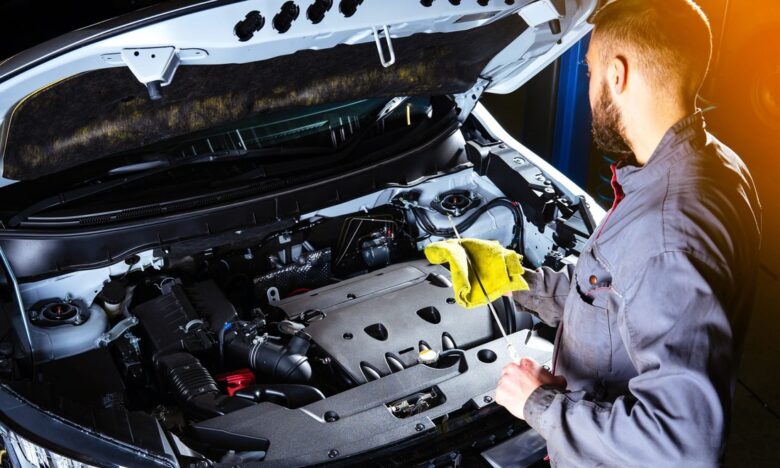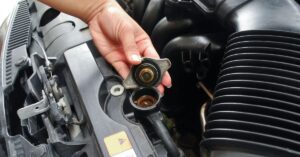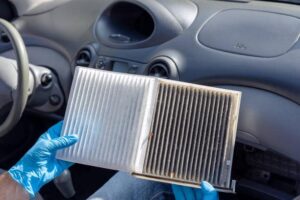Proper care of your car’s engine is important to ensure that it runs well, lasts long and uses fuel efficiently. Regular engine maintenance not only prevents problems before they happen, but also keeps your car in good condition, saving you money on expensive repairs later. Here are some important things you can do to keep your car engine running smoothly.
1. Change the Engine Oil Regularly:
Oil keeps car engines running. It keeps moving parts running smoothly and protects them from damage. It is very important to change the oil in your engine regularly. Over time, motor oil breaks down and collects dirt and other substances that can damage your engine. Change your motor oil at the manufacturer’s recommended frequency (usually every 3,000 to 5,000 miles for conventional oil and every 5,000 to 10,000 miles for synthetic oil) to keep your engine running smoothly. Always use the quality and type of engine oil specified by the vehicle manufacturer.
2. Locate and Replace the Air Filter:
The air filter prevents dust, dirt and other harmful particles from entering the engine and causing damage. If the air filter is clogged, the engine will not work properly and will consume more gasoline. Check the air filter every 12,000 to 15,000 miles and replace it if it is dirty. If you drive in an area with a lot of dust or pollution, you may need to check and replace your air filter more often.
3. Pay Attention to the Cooling System:
The cooling system helps keep the engine at the proper temperature by moving coolant to absorb and dissipate heat. If the cooling system isn’t working properly, the engine can overheat, which is one of the quickest ways to seriously damage your engine. This is important: check the coolant level regularly and add more if necessary. Depending on your car’s maintenance schedule, the cooling system may also need to be flushed and the coolant replaced.
4. Check Hoses and Belts:
An important part of the operation of your car’s engine are the belts and lines. Over time, these parts can wear out or weaken, causing them to crack and break. Checking your belts and lines regularly can help you catch problems before they damage your engine. Any worn or damaged belts must be replaced so that the engine and other systems continue to function properly.
5. Add the Correct Fuel:
To keep your engine running properly, you must use the right fuel. Using fuel with a lower octane rating than recommended can cause engine knocking, potentially damaging the engine over time. Make sure you use the type of fuel recommended in the owner’s manual to keep your engine running properly and avoid problems.
6. Keep Your Engine Clean:
If there is dirt and grime on your engine, it can build up heat and put extra strain on engine parts. Cleaning your engine compartment regularly will remove this dirt and help your engine run better. Take care when cleaning sensitive engine parts, and you may want to hire someone to do this for you if you are unsure how to do it yourself.
7. Use It Regularly and Follow Good Driving Habits:
Engines tend to work better when they are used regularly. If a car is not used for a long time, the engine can malfunction. Developing good driving habits can also extend the life of your engine. Try to keep your speed steady and don’t start and stop quickly. These habits will help keep your engine in good condition and make your car last longer.
8. Check the Operating Condition of the Engine:
Pay close attention to the feel and sound of the engine running. Strange noises (such as knocking or pinging) or performance changes (such as starting problems or loss of power) can be signs of engine problems. Addressing these issues early can prevent the problem from worsening, making it more expensive to fix later.
Conclusion:
By following these simple maintenance tips, you can keep your car’s engine in top condition. Regular maintenance not only extends the life of your engine, it also keeps your car safe and efficient on the road. When it comes to car repairs, remember that a little care can prevent a lot of problems.
FAQs:
1. How often should I change my car’s oil?
How often you should change your oil depends on the type of oil you use and the needs of your vehicle. Conventional motor oil should be changed approximately every 3,000 to 5,000 kilometers. The fuel can be changed every 5,000 to 10,000 km. Be sure to check your car’s owner’s manual for the manufacturer’s recommendations.
2. How do I know when my air filter needs to be replaced?
If the air filter is clogged, the engine may not function properly, which can affect things like acceleration and fuel economy. If this happens, check if the air filter is dirty and replace it if so. You should replace your air filter approximately every 12,000 to 15,000 miles.
3. What should I do if my engine gets too hot?
If your engine gets too hot, stop and turn it off as soon as it is safe to do so. Wait until the engine has cooled down and check the water level. To avoid burns, do not open the radiator cap when the engine is hot. Steam or hot water may spray out. Check for leaks or check the coolant level. If it’s not enough, add more. If the problem does not go away, you should seek expert help.
4. How do I know if I need to buy new belts and hoses?
Check belts and hoses for cracks, tears or brittle cracks to see if they are worn. Squealing noises from the engine compartment are another sign of a worn belt. If you don’t want your engine to break or deteriorate, you should have these parts repaired as soon as you notice that they are worn out.
5. Will the type of gasoline I use change the way my engine works?
Yes, using the right fuel quality is important to prevent engine failure. Using fuel with a lower octane rating than recommended can cause knocking, which can damage your engine over time. Always follow the octane rating stated in the owner’s manual.




